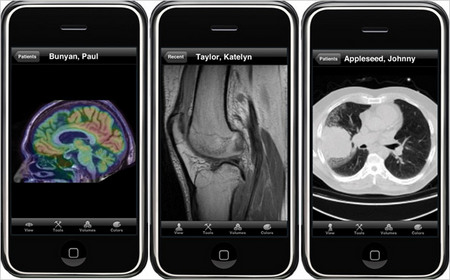 NEWS
NEWS
 NEWS
NEWS
 NEWS
NEWS
![]() Even though there has been wide adoption of the cloud by most industries, the healthcare industry continues to be slow in adopting cloud computing. This slow pace in embracing the cloud is mainly due to prevailing concerns in safeguarding highly sensitive patient information and compliance with HIPAA, HITECH Act and other laws that apply to healthcare organizations.
Even though there has been wide adoption of the cloud by most industries, the healthcare industry continues to be slow in adopting cloud computing. This slow pace in embracing the cloud is mainly due to prevailing concerns in safeguarding highly sensitive patient information and compliance with HIPAA, HITECH Act and other laws that apply to healthcare organizations.
But times are changing. Gartner sees annaul transactions for cloud related healthcare spending to increase to $150 billion by 2014.
Once the healthcare industry formulates guidelines that ensures privacy of data, the healthcare industry will reap substantial benefits that the cloud offers. Aside from cost reduction, an article by James Kunick of Health Data Management specifies a number of ways on how the healthcare industry could benefit in moving into the cloud, which includes:
- Access to encrypted EMR and EHR;
- Storage of de-identified patient data and practice guidelines in centralized databases;
- Home monitoring apps for patients; and
- Real-time collaboration by professionals using encrypted or de-identified patient data.
The healthcare industry would also have associated risks in moving into the cloud, including sharing highly confidential patient data to cloud providers which can be prone to data disclosure. If an unauthorized disclosure of patient data occurs, it would be very costly for healthcare organizations as they are required to recover/restore the data and to notify affected individuals of the disclosure.
James Kunick also mentioned ways on effectively integrating healthcare systems into the cloud. Initially, healthcare system should manage risk and compliance. A set of provisions should be formulated to ensure privacy of confidential data as well as requiring cloud providers to implement all necessary methods of data protection. In any case of data breach, a set of contingency measures should be made which involves making the cloud provider responsible for data recovery/restoration and informing affected patients. Periodic audits are also beneficial. It ensures that the cloud provider is doing its job to protect confidential patient data. Certain security concerns found in the audit should immediately be resolved by the cloud provider.
The healthcare industry depends a lot on their data to function. If disputes arises against cloud providers, healthcare organizations can be deprived from accessing their data and consequentially unable to perform its core services.
As a result, health care organizations should incorporate important protections into any provider agreements, including:
- Termination rights;
- Cure periods to allow time for a breach of contract to be remedied before the provider terminates or suspends services;
- Rights to access and retrieve data at any time; and
- Termination assistance if operations and data need to be moved to another provider.
Service Angle
Being data-driven in nature, the healthcare industry will eventually find its way to the cloud and with that, a more services oriented approach to IT. The advancement of medical technology requires healthcare organizations to manage the rapidly increasing data and the cloud is a cost-effective choice. But it’s not just cost-effective. It’s also becoming increasingly complex to continually provision more storage. A cloud service is a logical choice for customers facing that issue and in reality is really the most viable alternative to increased storage needs.
Support our mission to keep content open and free by engaging with theCUBE community. Join theCUBE’s Alumni Trust Network, where technology leaders connect, share intelligence and create opportunities.
Founded by tech visionaries John Furrier and Dave Vellante, SiliconANGLE Media has built a dynamic ecosystem of industry-leading digital media brands that reach 15+ million elite tech professionals. Our new proprietary theCUBE AI Video Cloud is breaking ground in audience interaction, leveraging theCUBEai.com neural network to help technology companies make data-driven decisions and stay at the forefront of industry conversations.